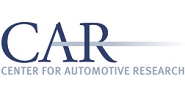Analysis

June 16, 2020
Auto Industry Jumps from Pandemic into USMCA Compliance Challenges
Written by Sandy Williams
The U.S. auto industry is facing a slew of challenges as it emerges from the COVID-19 crisis and plunges into preparations to meet USMCA compliance on July 1.
The Center for Automotive Research presented a discussion with Gov. Matt Blunt, president of the American Automotive Policy Council and former governor of Missouri, on the state of the automotive industry. AAPC represents U.S automakers Ford, General Motors and Fiat-Chrysler. All three manufacturers are back in production following shutdowns during the peak of the pandemic. Now the rush is on to provide the necessary paperwork to certify as USMCA compliant to avoid paying tariffs.
Automotive manufacturers are facing the most complicated content rules of origin that any free trade agreement has ever had, said Blunt. The auto industry favored delaying the USMCA’s entry into force, but instead has been allocated an extra six months to complete the necessary paperwork and changes that are required for compliance. There are still a number of technical aspects to the agreement that need clarifying before the July 1 deadline.
Auto suppliers can expect to see a dramatic increase in requests for information regarding product specifications, where components were manufactured and, in the case of Mexico, whether production of those products meets new labor value requirements. Per new rules within the USMCA, 40-45 percent of vehicle content must be made by workers earning more than $16 per hour. Additionally, 70 percent of the steel (N.A. melted and poured) and aluminum must be sourced in North America. Meeting requirements will require close collaboration with supply chains, said Blunt.
The North American auto industry will have a six-month transition period, followed by another six months of informed compliance. AAPC is working to ensure that manufacturers who are trying in good faith to comply with the new requirements are provided some flexibility by Customs and Border Protection.
Facilitating foreign trade for the automotive industry is one of the primary goals of the AAPC. About two million finished vehicles are exported from the U.S. every year—one million of which go to Mexico and Canada and the rest to Asia and Europe. The council was pleased that language was included in the USMCA addressing currency manipulation, and it seeks further acceptance of U.S. vehicle standards worldwide. The council is currently monitoring numerous bilateral trade agreements that are under way by the U.S. Trade Representative.
When asked how U.S. trade policy might change under a Biden administration, Blunt noted that the current administration has taken a more pragmatic approach to trade. “This administration doesn’t embrace free trade at any cost and it will remain the case for lots of Republicans,” he said. Blunt added that the Trump administration has permanently reshaped the Republican party trade approach and it will likely continue in the same vein for the next decade or two.
When asked about the revival of Section 232 automotive measures to counter the administration’s displeasure with bilateral Canada/EU agreements regarding the lobster trade, Blunt said the industry is not a supporter of S232 for the auto industry. Imports of autos and parts from Europe do not impact U.S. national security, he said, adding that such issues should be resolved through bilateral negotiations.
The COVID-19 pandemic is still impacting automotive supply chains. The North American auto industry and governments coordinated efforts to restart auto production, recognizing the interdependency of supply chains. There are still some problems with supply sourcing in Mexico, which was slower to reopen its economy.
Post-pandemic liquidity problems have created challenges for manufacturing, supply chains and distribution. AAPC is tracking efforts to incentivize and encourage auto sales. It is very possible, said Blunt, that there could be further government assistance down the road.






